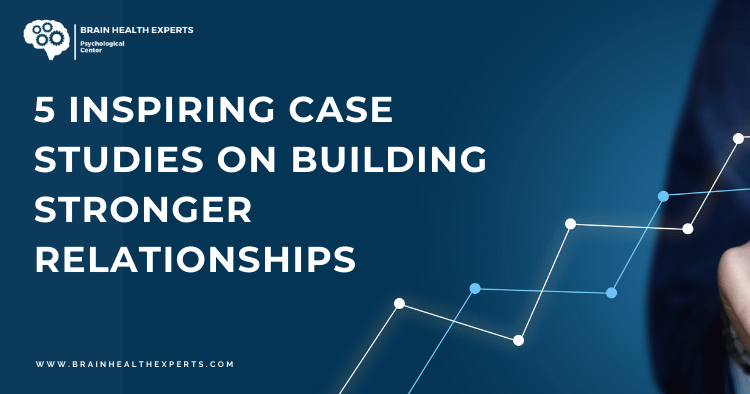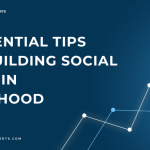Table of Contents
- Introduction
- Case Study 1: The Transformative Power of Active Listening
- Case Study 2: The Role of Empathy in Conflict Resolution
- Case Study 3: Building Trust Through Transparency
- Case Study 4: Enhancing Communication Skills Through Workshops
- Case Study 5: The Impact of Shared Experiences on Relationship Strength
- FAQs
- Conclusion
Introduction
In a world increasingly characterized by digital interactions and fast-paced living, the importance of nurturing strong relationships cannot be overstated. Whether it’s a romantic partnership, friendships, or professional connections, relationships are the cornerstone of our emotional well-being and personal growth. This article explores five inspiring case studies that highlight effective strategies for building stronger relationships. Each case study illustrates a unique approach, backed by research and real-life examples, to help you foster better bonds in your life.
Case Study 1: The Transformative Power of Active Listening
Active listening is a communication technique that goes beyond simply hearing words; it involves fully engaging with the speaker, understanding their message, and responding thoughtfully. A notable case study can be observed in a workplace setting at a tech company, where team members were struggling with collaboration and misunderstandings.
Key Findings:
- Implementation: The company introduced active listening training sessions, emphasizing techniques like paraphrasing, asking clarifying questions, and maintaining eye contact.
- Results: After three months, employee satisfaction scores rose by 30%, and project completion rates improved by 25%. Team members reported feeling more valued and understood.
Active Listening Techniques:
- Paraphrasing: Clarifies understanding.
- Asking Questions: Encourages deeper dialogue.
- Non-Verbal Cues: Enhances connection.
Conclusion
This case exemplifies how active listening can transform interactions, fostering an environment where relationships thrive. For more on improving communication and interpersonal skills, check out 10 Essential Communication Skills for Stronger Relationships.
Case Study 2: The Role of Empathy in Conflict Resolution
Empathy is crucial in resolving conflicts and fostering understanding. A community organization faced frequent disputes among members over differing opinions. They decided to implement an empathy workshop.
Key Findings:
- Implementation: Participants engaged in role-playing activities that allowed them to step into each other’s shoes.
- Results: Post-workshop surveys indicated a 40% reduction in conflicts, with members expressing greater compassion and understanding towards one another.
Empathy not only helps in resolving conflicts but also deepens relationships by creating a supportive community atmosphere. For more insights on empathy and its role in relationships, see 10 Ways Emotional Intelligence Strengthens Relationships.
Case Study 3: Building Trust Through Transparency
In a financial services firm, trust issues were undermining employee morale and productivity. The leadership decided to adopt a policy of transparency regarding company decisions and performance metrics.
Key Findings:
- Implementation: Regular town hall meetings and open-door policies were established, allowing employees to voice concerns and ask questions.
- Results: Within six months, employee trust levels increased by 50%, leading to higher employee retention rates and improved performance.
Trust-Building Strategies:
- Open Communication: Facilitates a culture of honesty.
- Accountability: Leaders who own mistakes foster trust.
Conclusion
This case underscores the importance of transparency in building trust, which is essential for strong relationships in any setting. For additional strategies on building trust, refer to 10 Essential Tips for Building Trust in Relationships.
Case Study 4: Enhancing Communication Skills Through Workshops
A nonprofit organization aimed to improve communication among volunteers who often felt disconnected. They organized a series of communication skills workshops.
Key Findings:
- Implementation: The workshops focused on verbal and non-verbal communication skills, including tone, body language, and effective feedback.
- Results: Post-workshop evaluations showed that 80% of participants felt more confident in their communication abilities, leading to a more cohesive volunteer team.
Communication Best Practices:
Practice Description Clarity Be direct and concise. Active Engagement Encourage participation. Non-Verbal Awareness Monitor body language.
Conclusion
Investing in communication skills is a powerful way to enhance relationships, particularly in collaborative environments. Explore 10 Essential Social Skills for Personal Growth & Success for more insights on this topic.
Case Study 5: The Impact of Shared Experiences on Relationship Strength
Shared experiences can significantly strengthen bonds between individuals. A group of friends decided to embark on a volunteering trip together, aiming to give back to the community.
Key Findings:
- Implementation: The group spent a week volunteering at a local shelter, engaging in team-building activities and collaborating on projects.
- Results: Surveys showed that participants felt a stronger connection to each other and reported a 60% increase in relationship satisfaction levels.
Shared experiences create lasting memories and deepen connections, reinforcing the importance of spending quality time with others. For more on building connections through shared activities, see 10 Fun Ways to Strengthen Family Relationships Today.
FAQs
Q1: What are some practical ways to improve active listening skills?
A1: Practice summarizing what others say, maintain eye contact, and avoid interrupting. Engaging in mindfulness exercises can also enhance focus during conversations.
Q2: How can I foster empathy in my daily interactions?
A2: Start by being open to other perspectives. Ask questions that encourage others to share their feelings and experiences, and practice active listening.
Q3: What role does trust play in relationships?
A3: Trust is foundational for any relationship. It fosters a safe environment where individuals can express themselves without fear of judgment.
Q4: How often should communication skills be practiced?
A4: Regular practice is key. Engage in conversations with different people, participate in workshops, and seek feedback to continuously improve.
Conclusion
Building stronger relationships is a journey that requires dedication, practice, and a willingness to learn. The case studies highlighted in this article illustrate various methods—from active listening and empathy to transparency and shared experiences—that can significantly enhance interpersonal connections. By implementing these strategies, you can cultivate more meaningful relationships in your personal and professional life. Remember, the effort you invest in building relationships today will pay dividends for years to come.
For more insights into improving relationships and social skills, consider visiting resources like Psychology Today or Verywell Mind. Additionally, check out the article 10 Ways Positive Thinking Transforms Your Relationships for more strategies on enhancing your interpersonal connections.




